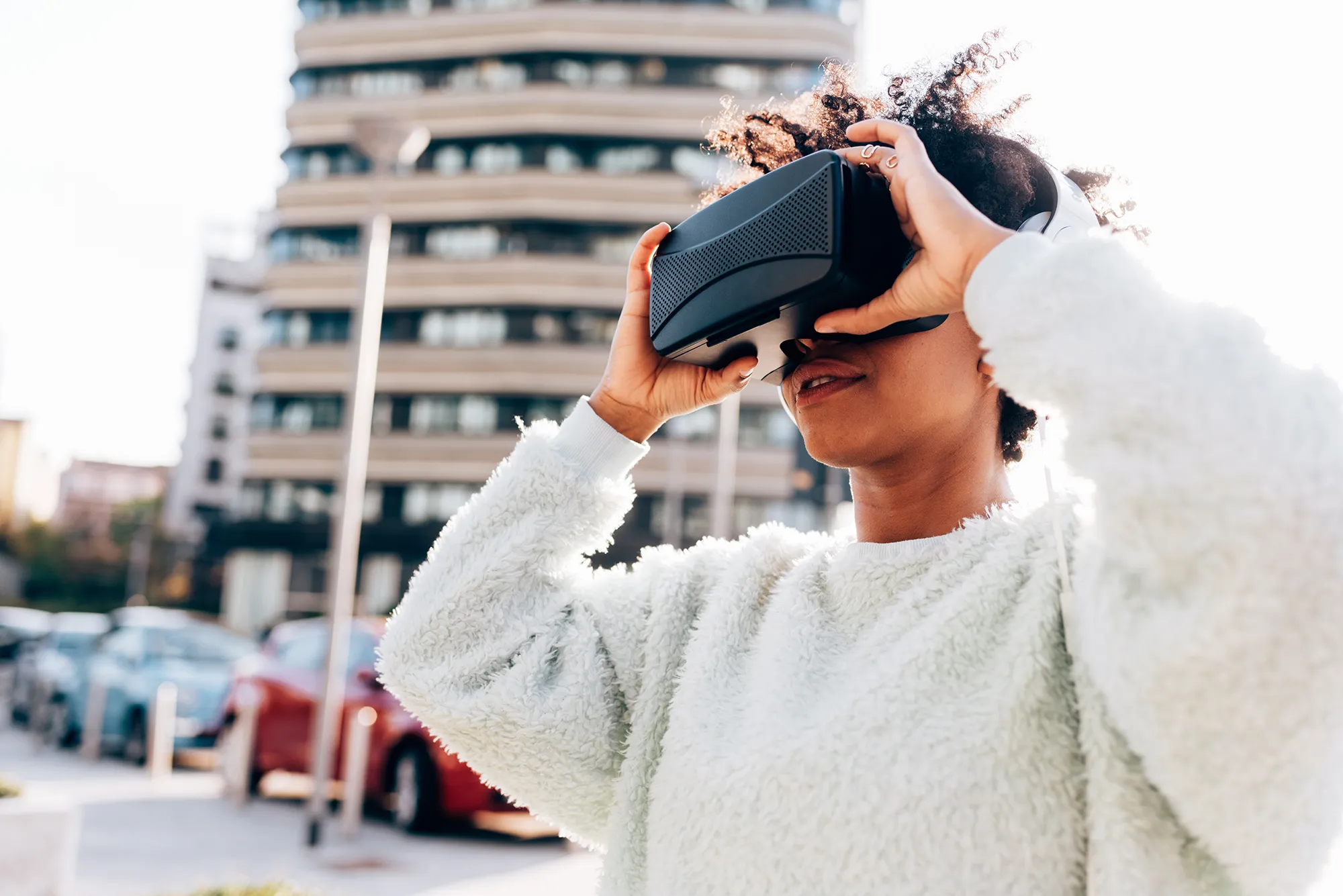

We’ve talked before about how VR will affect how you shop, whether you commute to work and what your office will be like when you get there. But virtual reality tools will also have some major impact on cities as a whole including how we exist in them and how we build them up.
Wearable technology like glasses equipped with augmented reality could help you more efficiently navigate cities and experience them in a new way. With augmented reality coupled with artificial intelligence, as you walk down the street, you could immediately get directions for a faster way to walk or information about nearby restaurants. Of course, today we can do this with our smartphones, but soon we won’t need to take the time to stop and look down.
Additionally, Google Street View’s hardware just got a lot better, and it can now provide clearer, crisper immersive visuals of entire cities. Google Cardboard already allows for bite-sized virtual visits to major tourist locations around the world, but soon, a more immersive and realistic VR experience will allow anyone to visit New York City, Paris, Rome, Tokyo and any other major tourist city anytime entirely virtually.
Virtual tourism has the potential to reduce actual tourism, drastically changing the economy of major cities and landscape of their downtowns. As a result, hotel investors in particular will likely be looking to rebrand prime locations for “staycations,” or in some instances, redeveloping entirely for apartments. Closings of tourist shops in some downtown locations will also offer more opportunities for new retail.
And city planners and landscape architects will find VR very useful in their jobs, as it will help them effectively design and better test, more efficient spaces before development. City managers could also soon develop VR experiences that clearly show property value and tax data in immersive street views, which will immensely benefit CRE marketing. Your clients and their investors will be able to virtually explore neighborhoods in renderings that clearly outline demographic information, potential earnings and other information like an immersive, interactive flyer.
Are you interested in learning more about VR? Check out our resource “Virtual reality for CRE: revolutionizing the buying, selling and consuming experience.”